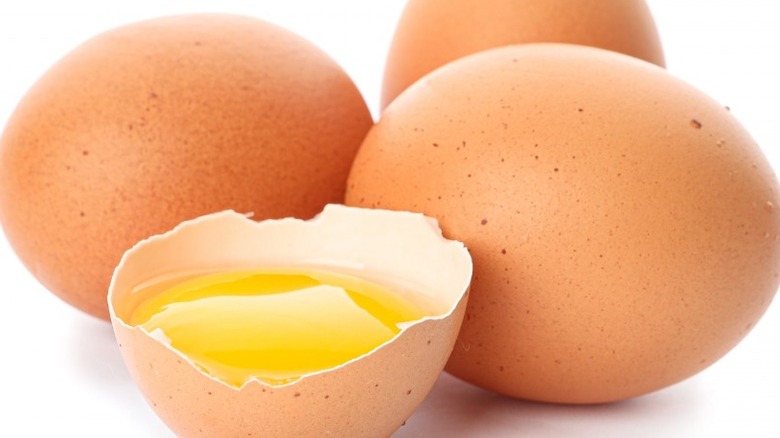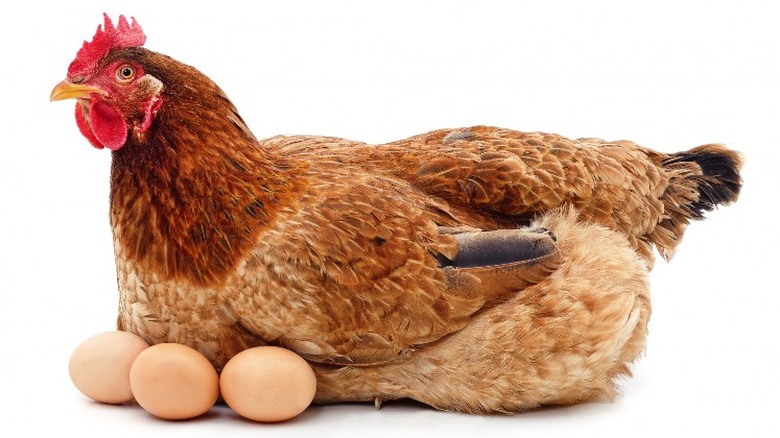Here's What Actually Determines Eggshell Thickness
Chickens lay eggs in every color of the rainbow, but the unique hues of chicken eggs have nothing to do with the overall quality and strength of the eggshell (per Backyard Chicken Project). Multiple factors influence the thickness of the eggshell, none of which can be judged by the shell's shade.
Roughly 6%-8% of eggs laid by chickens in the U.S. have damaged shells from the get-go, aviNews reports, and it's the quality of the shell determines how safe the egg is for consumption. The shell acts as a barrier to bacteria (which can cause illness if ingested) while maintaining a porous enough exterior to allow nutrients to pass through. Eggs with broken or blemished shells cannot be sold in stores, which causes massive economic loss for producers. Because so many eggs crack, either when handled or when laid, egg-producing companies can endure profit losses of roughly 10%.
Interestingly, America's eggs are different from the rest of the world's, as they must be washed before packaging, which also may contribute to more cracked shells.
Hen nutrition is paramount to eggshell thickness
Eggshell heartiness can depend on the age of the mother hen, as well as genetics, nutrition, and environmental stressors. Age matters when it comes to the shell's thickness, as the younger ones generally produce eggs with stronger shells, and older chickens lay those with weaker shells (via Eat This, Not That!). While age and genetics are typically out of the egg producers' control, proper nutrition is paramount to helping a mother hen reach its peak genetic form. In particular, hens must maintain high calcium levels during their laying periods.
Backyard Chicken Project reports that feeding chickens a high-quality diet of supplementary feed, and allowing them to forage for food on their own, results in increased shell production. Chickens from large-scale operations often eat a diet of pellet feed that is less nutrient-dense. They also seldom have space to forage, thus, they consume a less nutrient-dense diet. On the other hand, farm-fresh eggs from smaller producers often come from chickens who eat a nutritious diet, and they tend to lay eggs with thicker shells.
Mass egg production puts more emphasis on the number of eggs than the quality of eggs, which is the real reason most chickens lay so many eggs.

